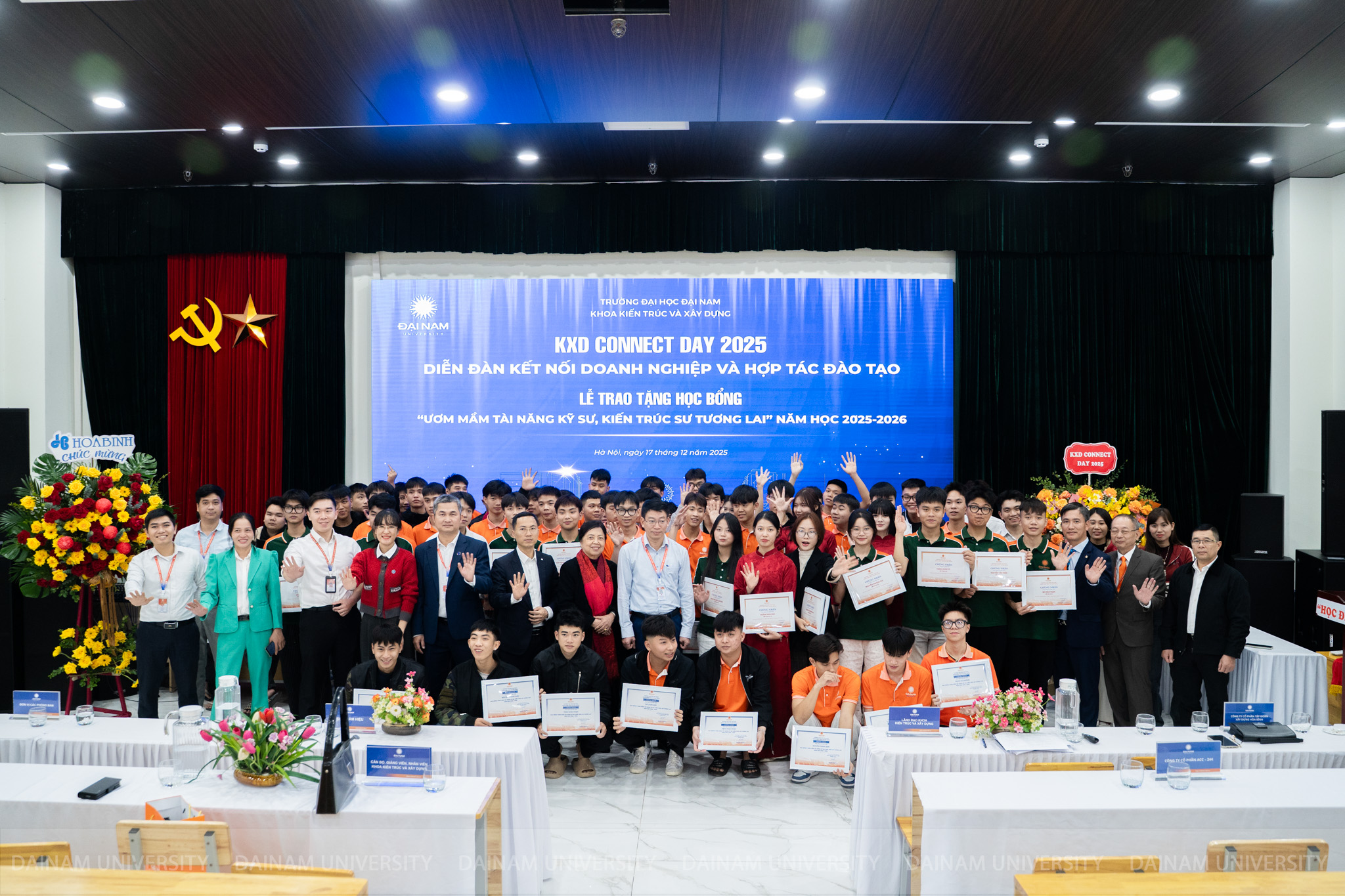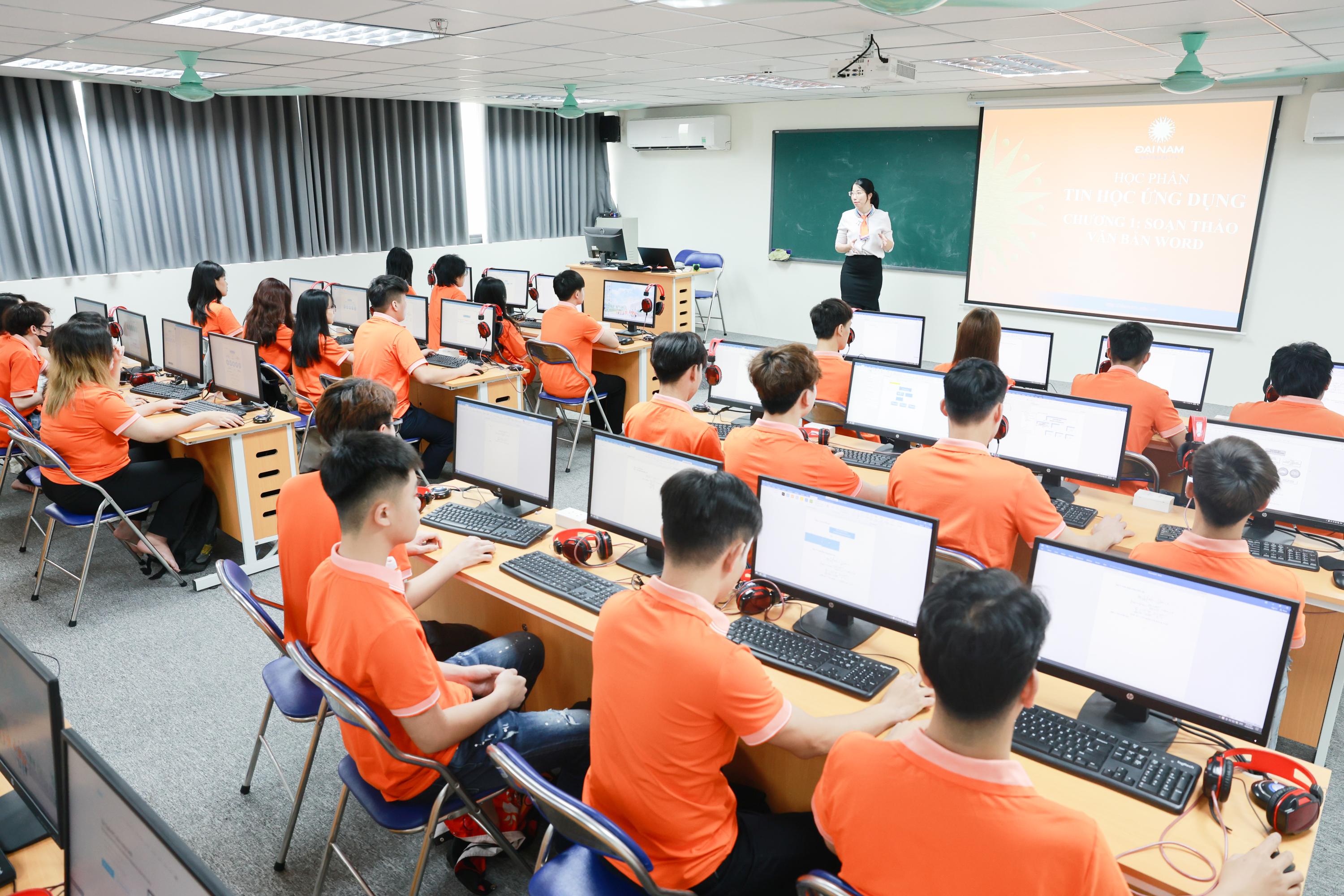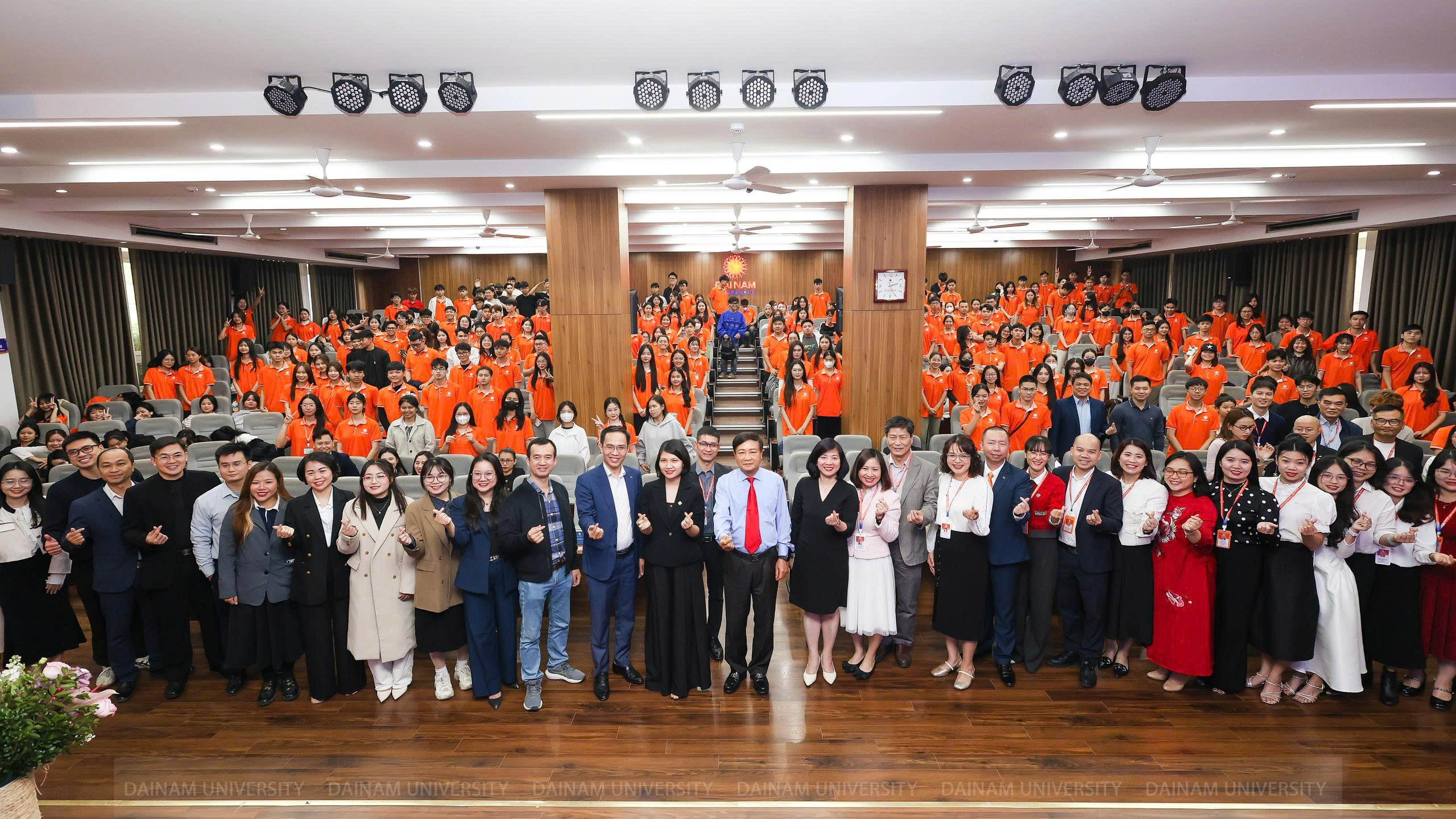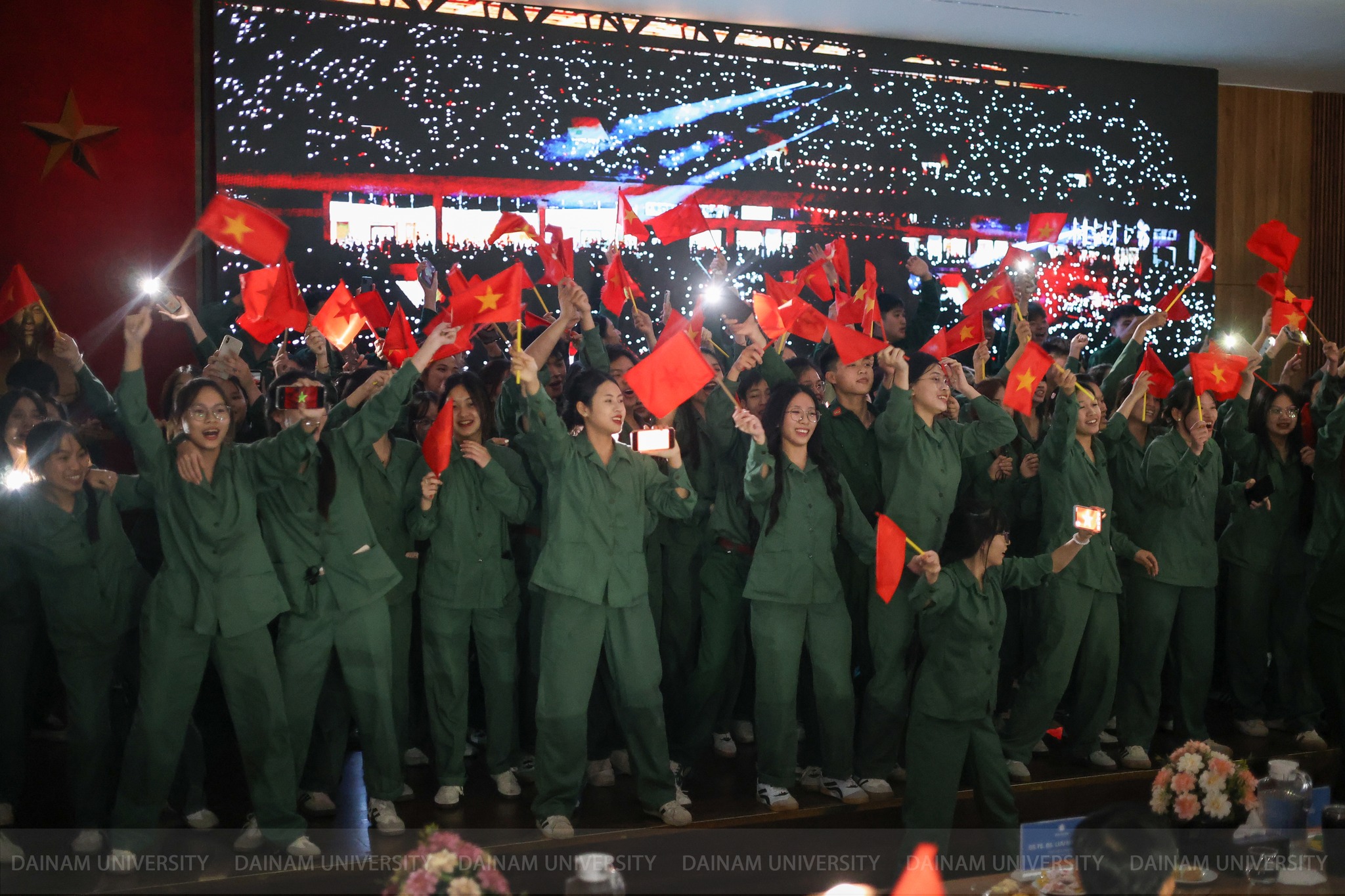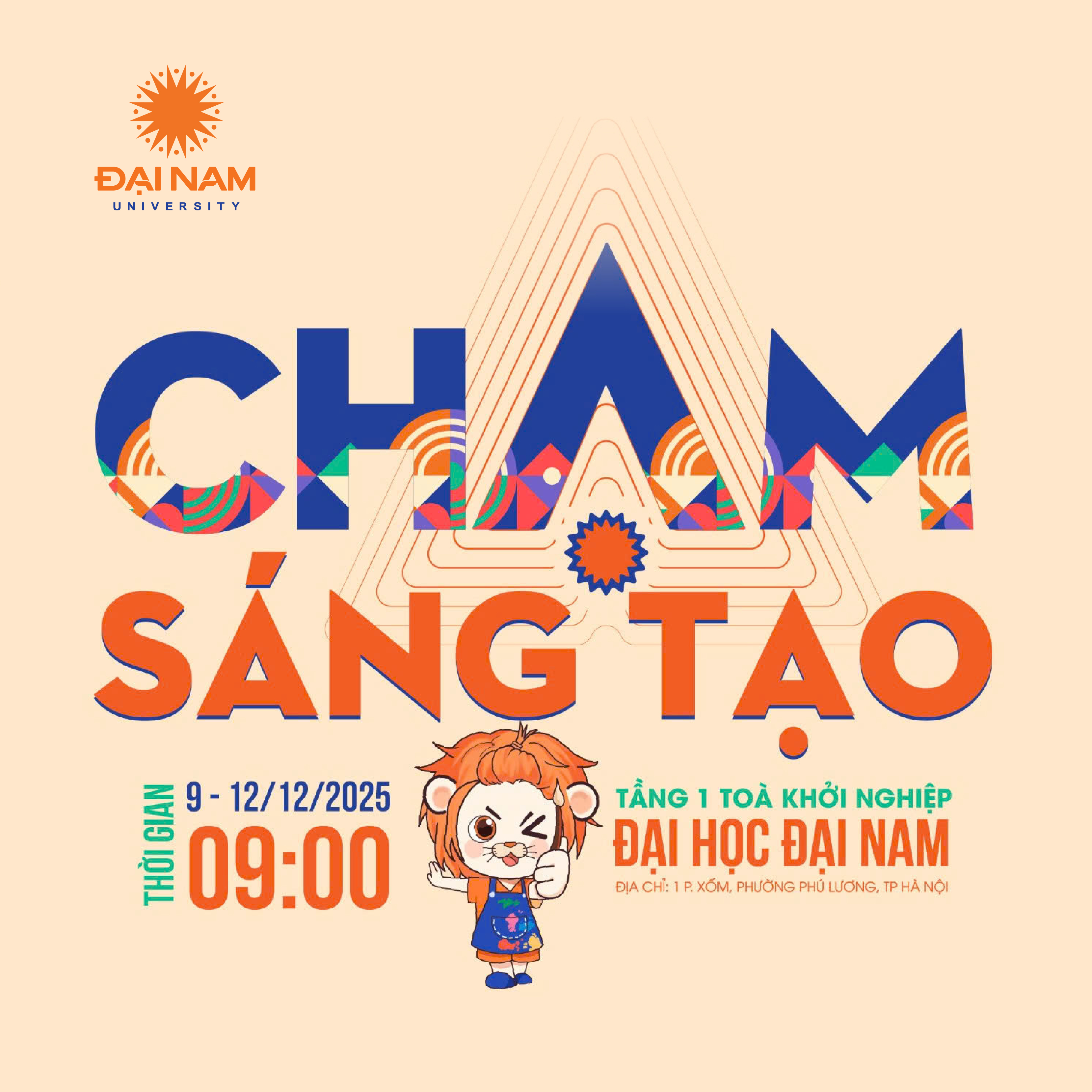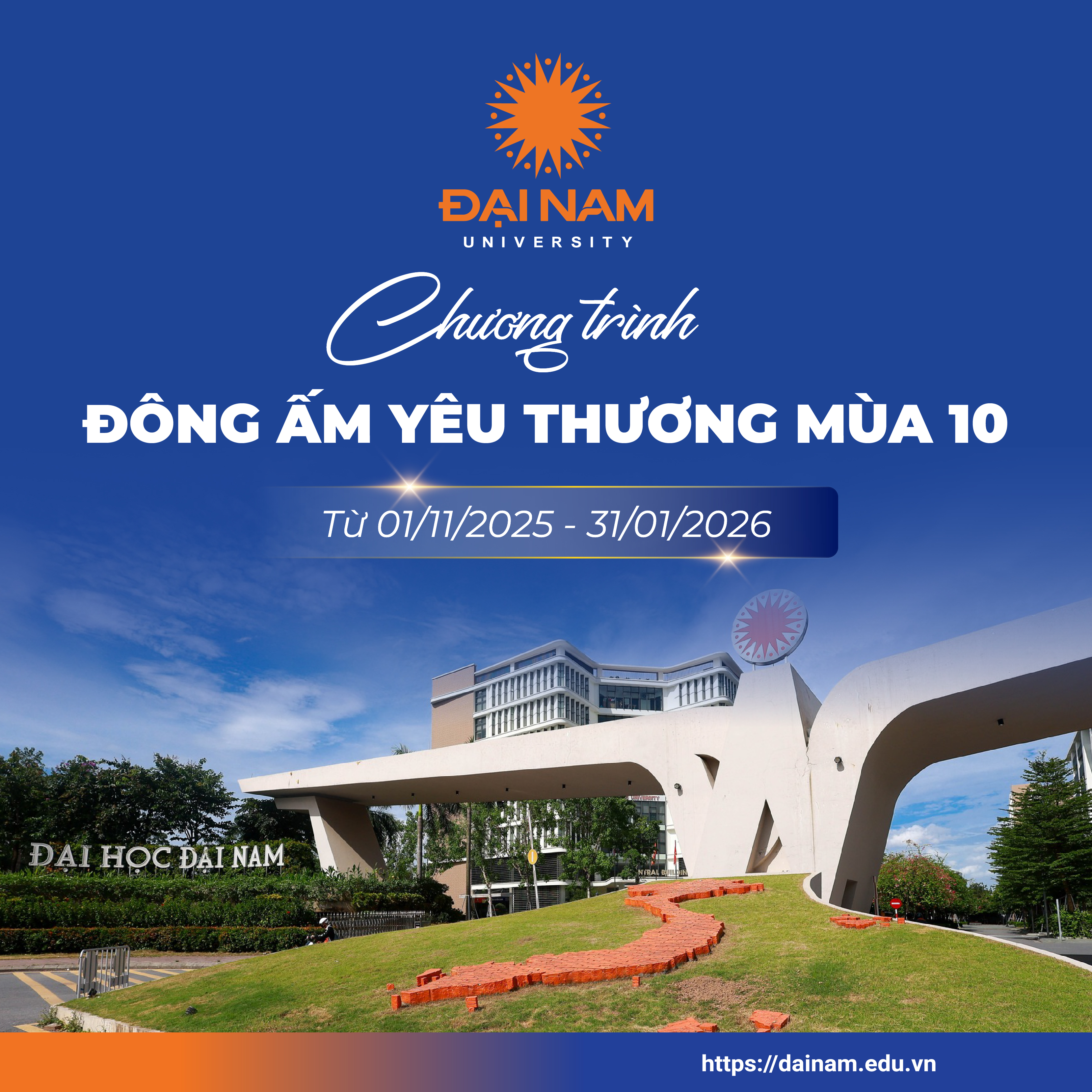Dai Nam University students conduct scientific research - Long-term benefits, competitive advantages

Scientific research (NCKH) is no longer a strange activity for students, and it is not by chance that in the training program of Dai Nam University students there is a subject called "Scientific Research Methods". For students, there are many different reasons to join hands to complete a scientific research paper such as hoping to increase GPA; brighten up their CV, academic profile; apply for scholarships; academic exchange; gain more knowledge and skills when working outside...
Opportunity to own a bright and beautiful profile when students participate in scientific research
Sharing about the benefits students get when participating in scientific research, Ms. Pham Thi Thu Hien - Deputy Head of the Department of Science Management and Development Cooperation said: "In addition to practicing self-study and research skills, accessing knowledge outside the classroom, students are supported by the School with a part of the cost of implementing the topic, and are granted a certificate of scientific research students. In addition, for award-winning topics, students are given priority points added to their average study score when considering semester rewards and graduation classification. These are proofs to demonstrate the students' learning and research capacity as well as their spirit, proactive attitude, and self-awareness right at school."
To complete a research topic, you need to practice planning skills, research outline building skills, handling unexpected situations, presentation skills as well as teamwork skills. In addition, there is an extremely "expensive" skill that helps you "survive" in the university environment, which is the skill of synthesizing and analyzing information to think more logically and systematically. Therefore, when completing a scientific research project, you will definitely cultivate your skills and experience, thereby beautifying your own profile.
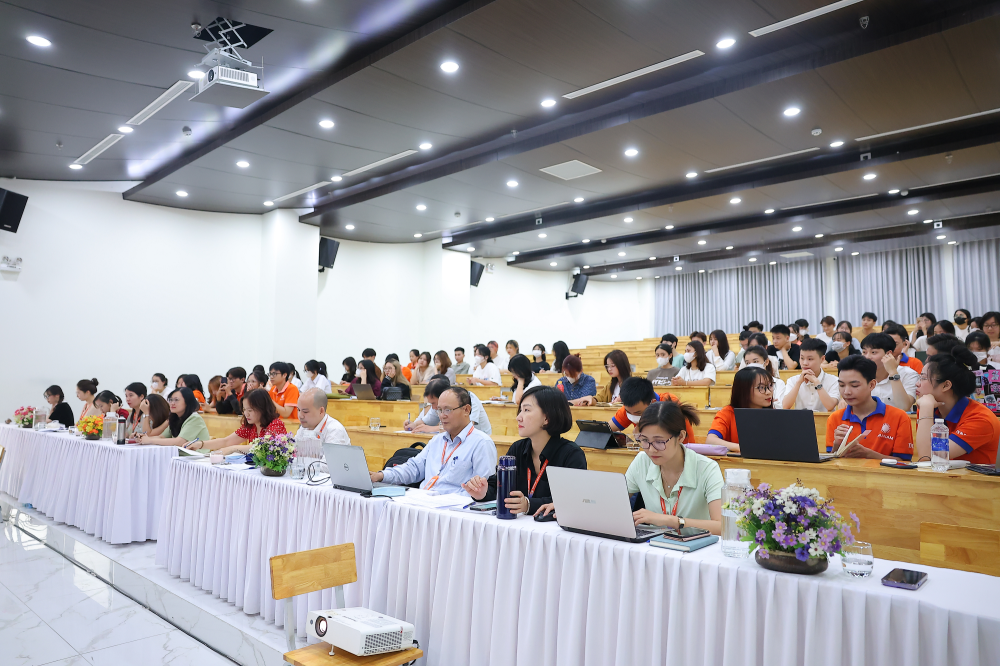
Council for acceptance of student scientific research topics at Dai Nam University.
Pham Hai Nguyen, class PR 14-01 said: “I feel that doing scientific research is not only at the academic level but also beneficial in the future. When participating in scientific research, I learned more about survey tools as well as knowledge about data analysis to apply to jobs such as market and customer surveys…” .
Nguyen Vu Nhat Linh, class PR 14-01, said, “Scientific research also opens up career opportunities: having a long history of research achievements in your CV makes you extremely attractive in the eyes of employers.”
In addition, by participating in scientific research, students have the opportunity to fulfill their dream of studying abroad with a “dreamy” CV. Admissions boards of foreign universities highly appreciate applications with scientific research topics that benefit life and demonstrate logical thinking and critical thinking skills. This is the advantage of graduate students when applying for scholarships at top universities.
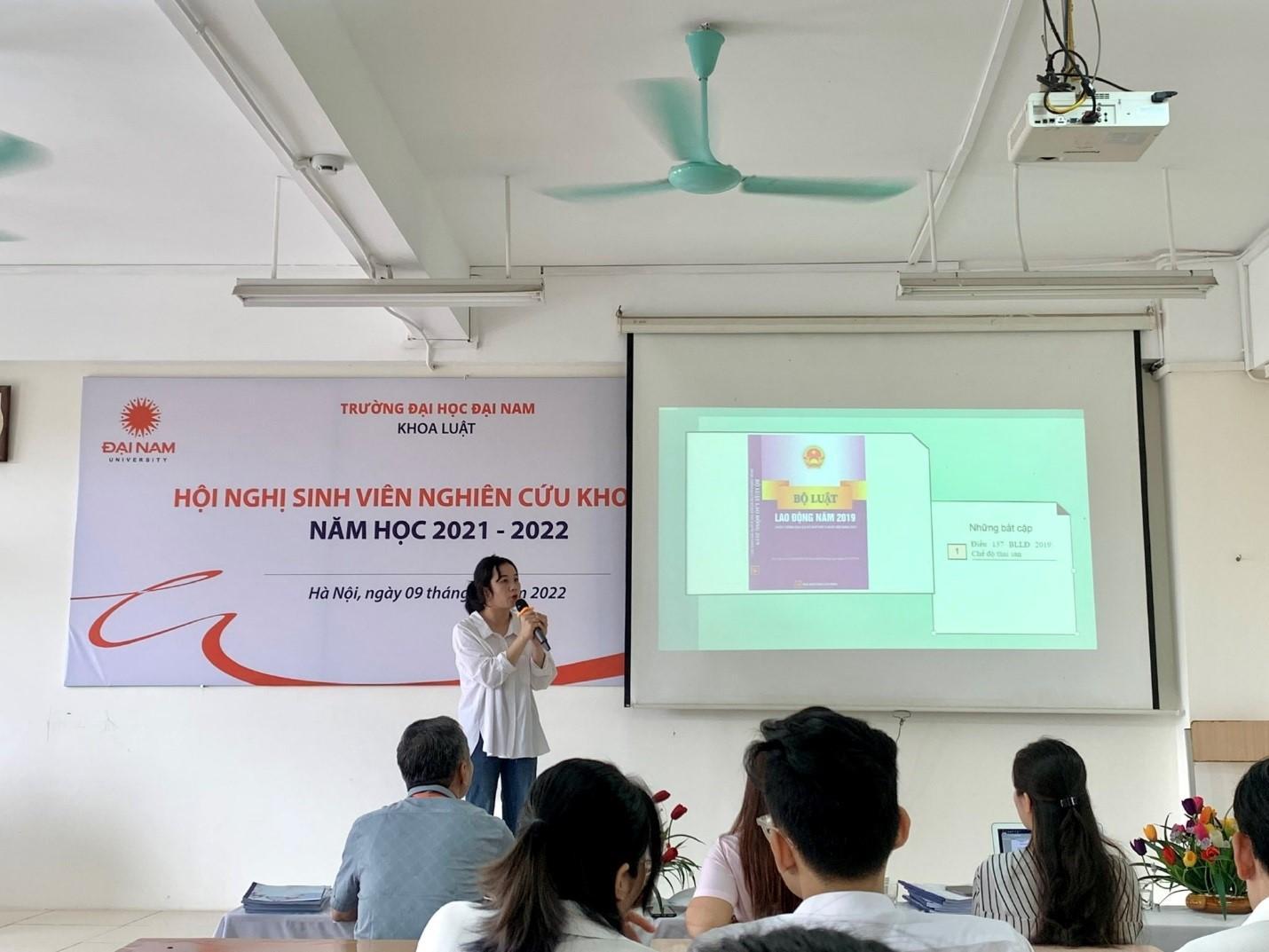
Dai Nam students defend student scientific research topics.
Participating in scientific research helps students supplement knowledge that is not learned in the main curriculum, fill in knowledge about social life to enrich their life experience. We can develop the ability to analyze, evaluate, associate, combine with new things to solve problems that are of interest, question... from one problem will expand to many problems, enriching our knowledge as well as our life experience.
Bui Thi Cam Linh, a student of PR class 14-01, shared: “I participate in scientific research to strengthen my academic profile. I personally find that scientific research is another proof to help my profile “brighten” when applying for scholarships, academic exchanges, etc. In addition, during the process of doing scientific research, I can also ask for recommendation letters from lecturers and professors who are your advisors. In particular, if you are named in an article in a prestigious journal, your profile will be different from those with similar GPA scores.”
Dinh Phuong Lien, PR class 14-01, shared: “In addition to making a “thick CV” or impressing employers, after participating in scientific research, I have more experience writing reports and graduation theses than other students. These experiences are really useful for final year students and when leaving school to work. Higher are master’s theses or doctoral dissertations…”.

Some "pocket" experiences when participating in scientific research
Depending on each person's ability, each person's scientific research process will have its own experiences and lessons learned. For our research group, there are also experiences and lessons learned:
Proactively contacting the supervisor is also important and is also the first lesson learned when conducting scientific research. When starting scientific research, you need the support of the supervisor and to save time for both parties, you should be proactive in everything. Not every supervisor can guide you from AZ, scientific research is an activity that requires self-discovery and continuous learning. The more proactive you are, the more time you will save when working with the supervisor, as well as leave a good impression on the supervisor and they will support you more effectively.
Choosing a research topic , to start the research, the first step is to choose a research topic. For university students, choosing a scientific topic can be difficult. However, choosing a topic must meet 4 factors: Scientific; Novel; Practical and Suitable for personal ability.
Collect documents , after choosing a topic, you should read a lot of documents to know the research situation on that issue and find the "gap" that you can choose to research, at the same time you need to have related documents to build a solid foundation of knowledge about your research field. Do not choose a topic simply because you like it, choose a topic that you like and have abundant reference materials. This is an extremely important step, deciding whether your topic is feasible or not. In addition to textbooks and monographs that can be found in the library, there is another source of reference materials where you can read theses, dissertations, and English scientific journals in all fields.
Researchers can find reference materials from the following four sources: School libraries or archives; materials from instructors; scientific publications; websites that store scientific materials.
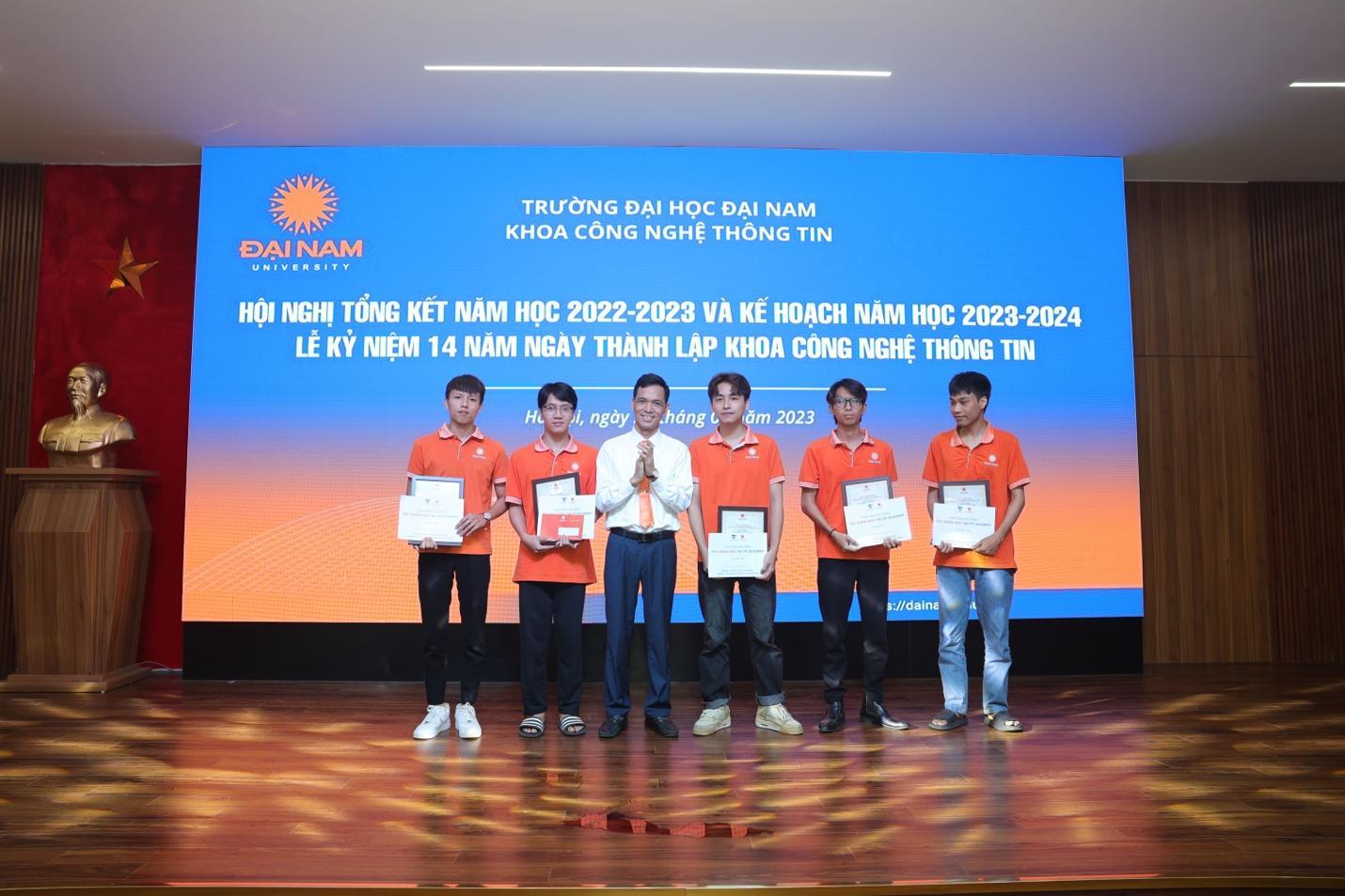
Students with achievements in student scientific research activities receive awards.
Choose a topic name - Identify issues related to the topic, the topic name can be a statement, a question, or a brief description of the content of the scientific research article (this is the most commonly used type).
Identify issues related to the topic, ask questions and answer them yourself. Some issues that can be referenced to ask questions are: research object, research scope, research purpose, research content; research method, etc.
Planning - Building an outline, both to orient the research content, showing the layout of the work to carry out the assigned tasks in a more proactive and scientific way. We need to plan to outline the progress, sequence, and timing of activities during the research process; Building an outline to be able to focus on the content and issues of the research to avoid being distracted and straying from the research problem.
Writing an article , after finalizing the topic name and outline, we can start writing. However, your outline may also change a little during the writing process. When writing an article, you need to present it scientifically, based on the detailed outline that has been created to write, avoiding the phenomenon of repeating ideas. Every time you state a definition or opinion, there must be at least 3 examples and proceed to analyze the examples. Avoid the phenomenon of stating empty theories without evidence.
In the process of writing, to minimize plagiarism, when citing anything, you must put the quote in quotation marks. In addition, before citing, for reference materials such as books, you must clearly state the author's name, document title, year of publication, and publisher; for documents such as theses and dissertations, you must clearly state the author's name, thesis title, year of writing, university where the author published... Clearly stating the source of reference materials is very important in a scientific research paper.
The research process is when you learn deeply about a problem. When working and discussing with supervisors, you need to invest time and effort into the topic so that your research paper can produce the desired results. To have a scientific research paper published in a prestigious journal is not a simple thing, it requires perseverance, effort and a certain interest in scientific research. If you are still wondering whether you are suitable for scientific research or not, just try your best!
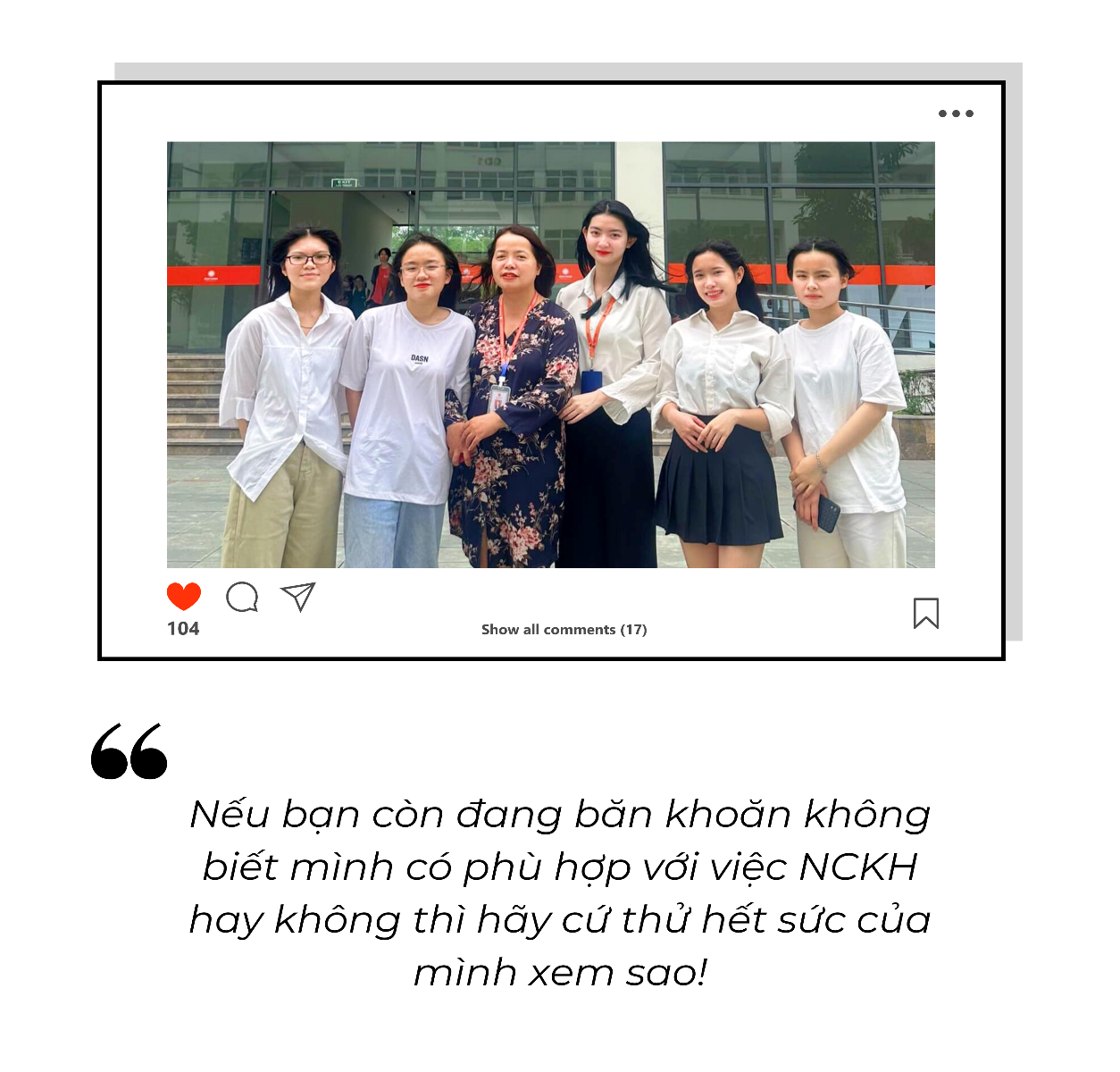
Pham Hai Nguyen - PR 14-01, BTT
Register for admission consultation 2025
scholarships and tuition support worth up to 55 billion VND

scholarships and tuition support worth up to 55 billion VND

